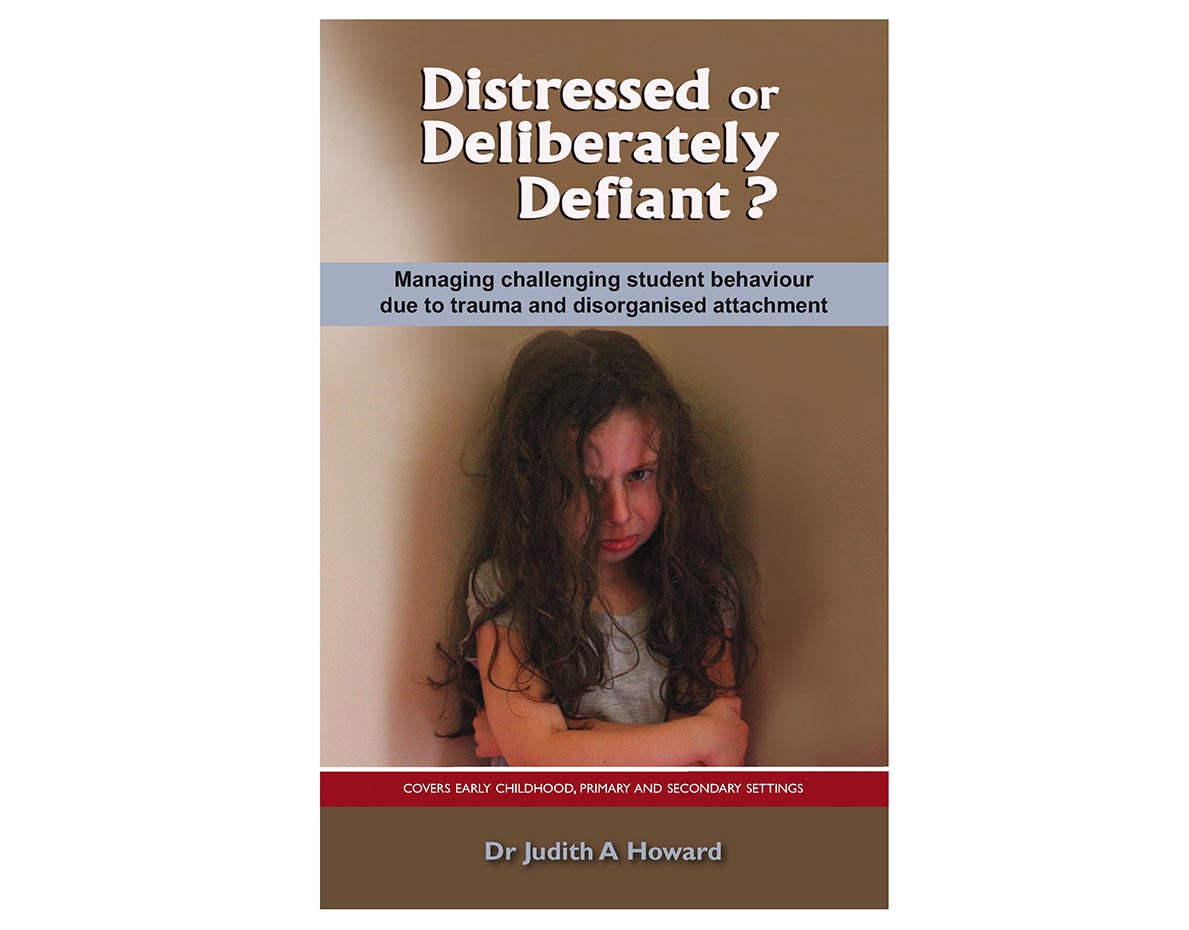AU$36.95
Trauma-Aware Education
By Judith Howard
"How to embed awareness and management of complex trauma in school systems
to help vulnerable impacted students achieve better lives."
"Judith Howard opens the door for all educational professionals and policy makers to an international movement for trauma-aware schooling. Her book shows compassion for educators by suggesting practical and commonsense measures for taking action.”
Professor Michael Gregory. Clinical Professor of Law at Harvard Law School and Senior Attorney at the Trauma and Learning Policy Initiative in Massachusetts, USA.
"A pioneer in the emerging and much needed paradigm of trauma-aware education. Judith Howard’s book should be mandated reading for pre-service teachers and university teacher training courses.”
Dr Tom Brunzell, Director, Berry Street Education Model & Honorary Fellow, University of Melbourne Graduate School of Education.
Now, more than ever, in a world of stress, disadvantage and unpredictability, schools struggle to manage the confronting needs of some of our most disadvantaged and vulnerable learners — those suffering complex trauma. This type of trauma stems from repeated interpersonal harm done to children, including physical, emotional, or sexual abuse, significant neglect, and the experience of family or other relational violence. These learners require a ‘trauma-aware’ response. Behaviour management techniques that may work for most learners often fail when used with trauma-impacted children.
This book assists educators from an individual and system perspective in developing trauma-aware education frameworks to enable learners and educators to avoid the devastating effects of complex trauma on mental health. It examines and discusses the impacts of complex and other trauma on learners and how trauma-aware education provides an informed approach to remedy these concerns.
Topics covered include:
•the impacts of complex trauma
•the evidence-base for trauma-aware education
•a paradigm shift in the way learner behaviours are ‘managed’
•effective strategies for a trauma-aware education response
•working with learners who live with disability
•a trauma-aware approach for early childhood education and care
•maintaining well-being for educators
•leadership of trauma-aware education in sites and systems.
SEE ALSO

About the Author
Dr Judith Howard is an Associate Professor in the Education Faculty at the Queensland University of Technology. She has an extensive career history with schooling in Australia and has worked as a teacher, school counsellor and behaviour support specialist. She has held both regional and state positions overseeing work in student behaviour support. Dr Howard’s work has a keen focus on the concerns of young learners who have experienced complex trauma. She promotes a neuroscience-informed approach — to which she believes every educator and worker in every school and early childhood service needs access. Dr Howard oversees pre-service and post-graduate teacher education in trauma-aware education, is the principal chair of the biennial Trauma-Aware Schooling conference in Australia, has developed online courses reaching thousands nationally and internationally, and continues to research, write, speak and train on this vitally important topic. She is the author of the highly popular teacher resource Distressed or Deliberately Defiant: Managing Challenging Student Behaviour due to Trauma and Disorganised Attachment (2013).
Table of Contents
CHAPTER 1 Becoming Aware of the Impact of Trauma and Trauma-Aware Education
Understanding Trauma
Who are these trauma-impacted learners?
The Costs of Unresolved Trauma
Understanding Trauma-Aware Education
Summary
CHAPTER 2 The Research Informing Trauma-Aware Education
Is Trauma-Aware Education Evidence-Based?
The Adverse Childhood Experiences Study
Romanian Orphanages Studies
Studies Examining Attachment
Prevalence Studies
Longitudinal Studies
Systematic Reviews
Summary
CHAPTER 3 The Neuroscience of Learning and Complex Trauma
Research Powerhouses: Sources for the Science
The Nervous System
The Human Brain
Human Altriciality and Human Potential
Neurons
The Mirror Neuron System
Genetics, Epigenetics, and Intergenerational transmission
Hyperarousal and Hypoarousal
The Endocrine System and the HPA Axis
The Immune System
Dissociation
Memory
Executive Function
Oral Language
Sensory Issues
Resilience
Summary
CHAPTER 4 Behaviour Management (Behaviourism verses Neuroscience)
Considerations for Classroom Behaviour Management
Considerations for Whole-School Behaviour Management
Considerations for Intensive Behaviour Support
Considerations for Crisis Management
The Process of Co-Regulation
Suspension and Time Away from School
Re-Entry Meetings
Exclusion from School
Behaviour Management Policy
Case Management and Individual Support Planning
Summary
CHAPTER 5 Trauma-Aware Strategies (Safety, Relationships, Emotional Regulation)
The Mentor, Check In and Check Out
Safe Spaces
Emotional Regulation Strategies
Check Curriculum and Assessment Triggers
Pick Your Battles
Non-verbal Messages
Exploring Exceptions
Relational Rewards
A Better Way to Use Detention
Use Inclusive Education Strategies
Cognitive Scripts
Look for the Gold!
Model and Coach
Whole Class Lessons
Brain Breaks
Mindfulness
The Assistance of Animals
Summary
CHAPTER 6 The Complex Intersection Between Trauma and Disability
Legislation and Models of Disability
Problems with Diagnosis of Complex Trauma ‘Disorders’
Prevalence of the Intersection
What about Universal Screening for Trauma?
Summary
Chapter 7 Trauma-Aware Early Childhood Education and Care
Play and Brain Development
Secure Base and Safe Haven
Serve and Return
Investing in Early Brain Development
Summary
CHAPTER 8 Trauma-Aware Staff Support: Looking after our Educators
A Team Approach
Vicarious Trauma
Vicarious Trauma and Supervisors
Responding to Vicarious Trauma
Research of Vicarious Trauma
Prevention is Better than Cure: Initial Teacher Education
Summary
CHAPTER 9 Leading Trauma-Aware Education
Leaders in Education Systems
Complexities and Opportunities
Advocacy
Building a Staff Leadership Framework
Collaboration
Leaders of Education Sites
The School Counsellor
Spheres of Influence
Leading People in a Trauma-Aware Manner
Summary
CHAPTER 10 A final word from the author
REFERENCES

